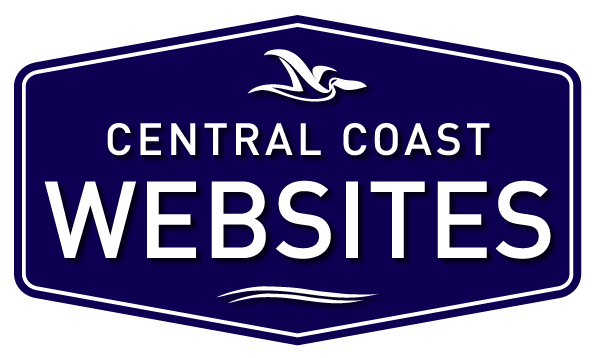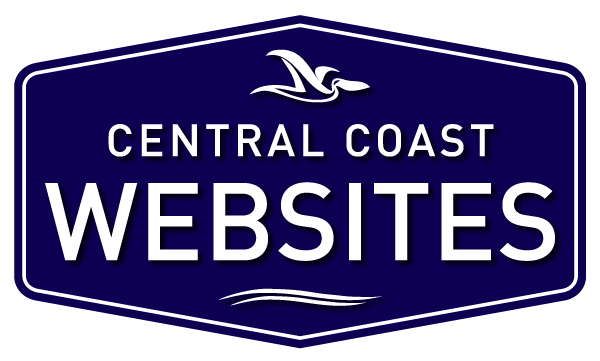The Elements of Search Engine Optimisation
In today’s digital age, where the internet is the gateway to endless information and opportunities, mastering the art of Search Engine Optimisation (SEO) is nothing short of essential. Imagine having the power to unlock the hidden potential of your online presence, reaching a global audience, and skyrocketing your website’s visibility. SEO is the key that unlocks this potential. But what exactly is SEO, and how can you harness its magic?
In the upcoming sections, we are going to look into the core elements of SEO, the strategies, techniques, and best practices that will not only captivate search engines but also captivate your audience, driving them to explore, engage, and connect with your content.
Why is SEO so crucial? Well, imagine having a beautifully designed storefront but locating it in a back alley. That’s what it’s like to have an unoptimised website. In a world where 75% of people don’t scroll past the first page of Google search results, staying ahead of the game in SEO is not just important—it’s absolutely vital for your business’ success.
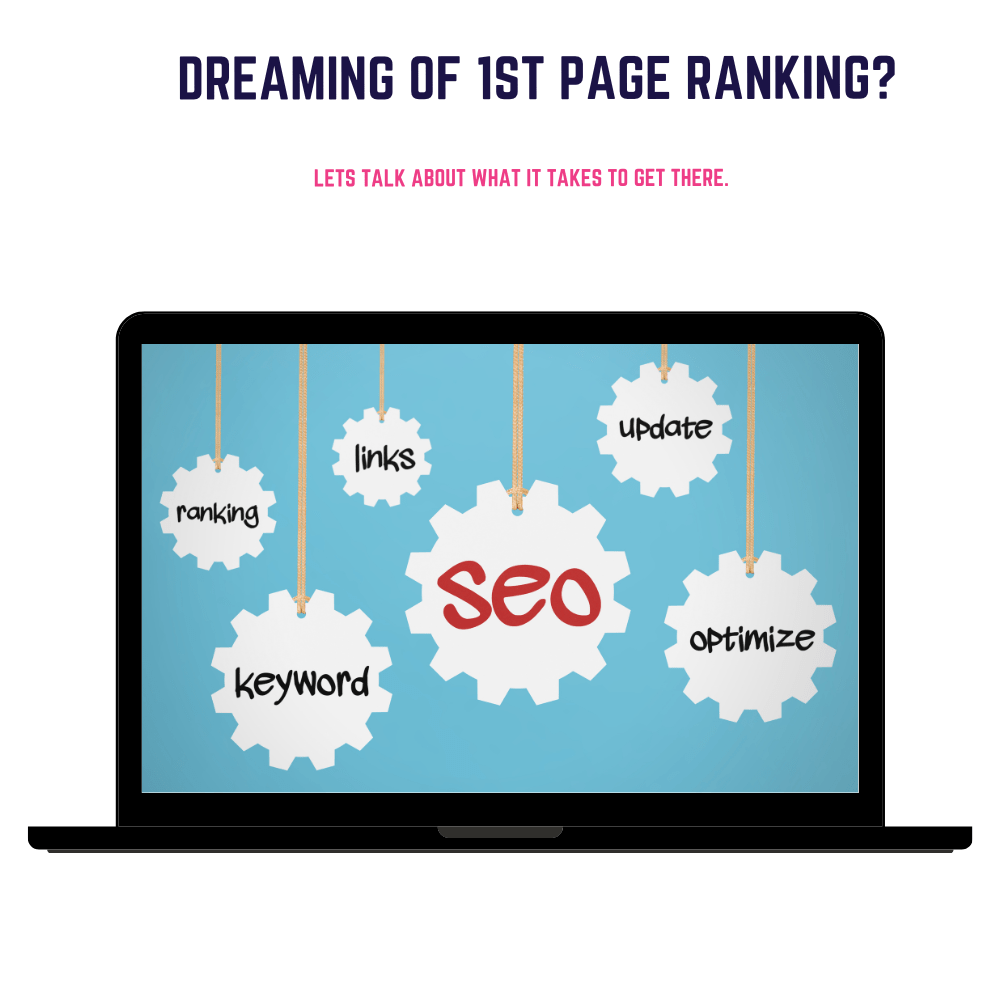
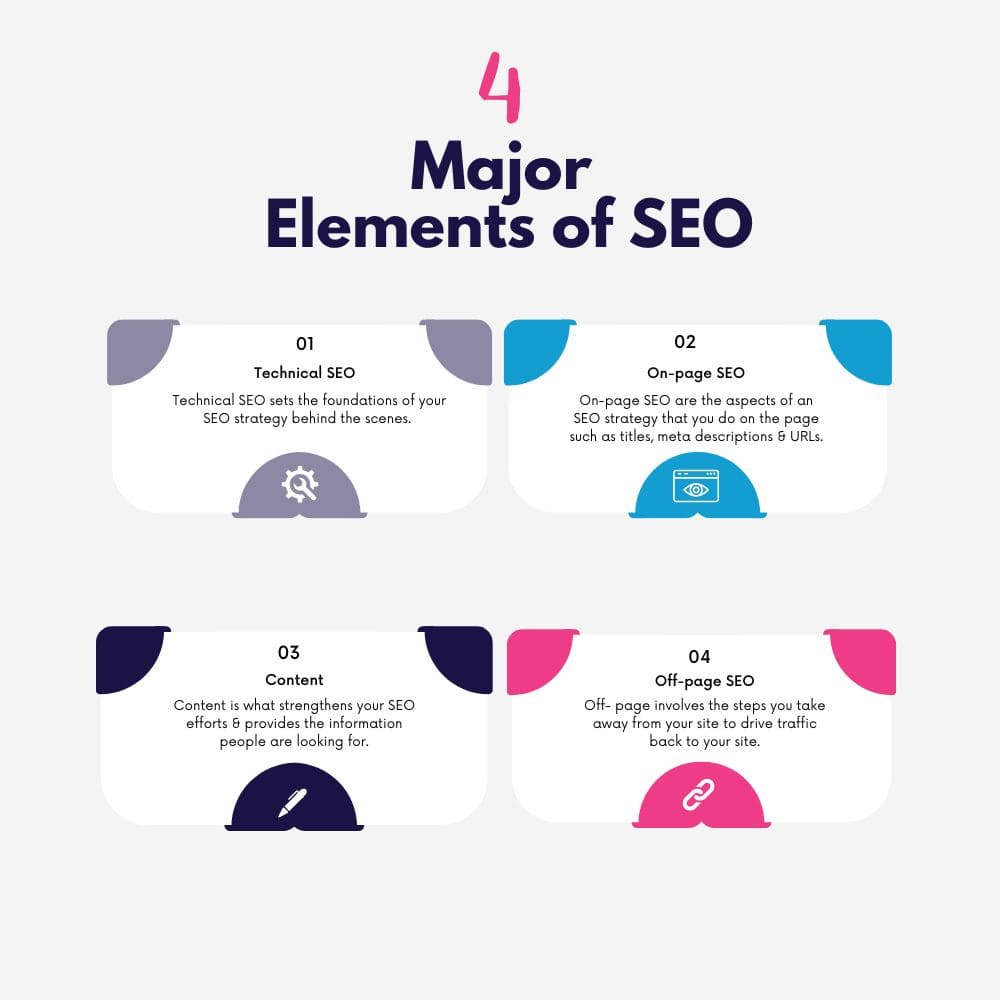
What is Search Engine Optimisation (SEO)?
Most people have heard the term “Search Engine Optimisation”, but what does it really mean? At its core, SEO is about enhancing your website so that it ranks higher in search engine results pages (SERPs). The goal is to increase both the quantity and quality of traffic that comes your way. Think of SEO as the roadmap that guides potential customers to your digital doorstep. When done effectively, it doesn’t just bring more visitors to your website; it attracts the right kind of visitors—those who are genuinely interested in what you have to offer.
SEO is not a new concept; it’s been around almost as long as search engines themselves. In the early days of the internet, SEO was relatively simple. It often involved “keyword stuffing,” where you would cram as many relevant keywords as possible into your website’s content. This tactic worked to some extent because search engines were less sophisticated and primarily relied on keyword matching to rank websites.
Fast forward to today, and things are a lot more nuanced. Search engines like Google have developed highly complex algorithms that consider a multitude of factors, from mobile-friendliness and website speed to backlinks and user engagement. SEO has evolved into a multi-faceted discipline that involves a variety of strategies and techniques, including keyword research, content creation, technical optimisation, and more.
So, why does this matter for you? Well, whether you’re a local business looking to attract customers or a growing company hoping to expand your reach throughout Australia or even the world, understanding the ins and outs of SEO is essential. With consumers increasingly turning to Google for everything from product recommendations to service providers, you can’t afford to be left behind.
The Importance of Search Engine Optimisation for your Business.
Increases Website Visibility
Firstly, SEO dramatically enhances your website's visibility. Imagine having a billboard on a busy highway versus a poster in a back alley. Which do you think will garner more attention? Being highly visible on search engine results equates to more eyeballs on your website, and consequently, more potential customers. This is especially crucial for local businesses. Whether you're a cafe in Newcastle or a plumbing service in the Central Coast, you want to be the first option people see when they search for services you offer.
Drives Organic Traffic
Let's talk about organic traffic. These are the visitors who find your website through unpaid search results, and they are often the most valuable type of traffic. Why? Because they are actively searching for information, products, or services that you provide. Organic traffic is inherently more targeted, making users more likely to convert, whether that's making a purchase, filling out a contact form, or any other action you desire.
Builds Credibility and Trust
One often overlooked benefit of SEO is the credibility and trust it builds. Being on the first page of search results sends a strong signal to users that you are a reputable and authoritative source in your field. We've all heard the joke, "Where's the best place to hide a dead body? Page two of Google search results." There's a grain of truth here: if your website is on the first page, especially among the top results, people are more likely to trust and engage with your business. And let's not forget, trust is the cornerstone of conversion and customer retention. SEO is not just about climbing the SERPs but about establishing a robust online presence that drives high-quality traffic, builds trust, and turns visitors into loyal customers. So if you're still debating whether or not to invest in SEO, consider this your wake-up call. The digital landscape is ever-evolving, and SEO is your key to staying ahead of the curve.
How Search Engines Work
Crawling and Indexing
The first step in any search engine’s process is known as ‘crawling.’ In this stage, search engines deploy what are essentially internet robots—commonly known as ‘crawlers’ or ‘spiders’—to explore the vast landscape of the web. These crawlers go from website to website and page to page, collecting information and taking note of what each site is about.
Once this data is gathered, the search engine moves on to the ‘indexing’ phase. In simple terms, indexing is like adding your website to a giant, digital library. The search engine stores all the information it has collected in its index, which is a database of all the webpages it has found and deems worthy of serving up to users.
Algorithms and Ranking Factors
Now, onto the question everyone’s asking: “How do search engines decide which websites to show first?”This is where algorithms come into play. An algorithm is essentially a complex set of rules that the search engine follows to sort through its index and find the most relevant results for any given query.
Google uses over 200 ranking factors in its algorithm. While the exact formula is a closely guarded secret, some known ranking factors include site speed, mobile responsiveness, backlinks, and of course, content relevance. The search engine continually evaluates websites against these criteria to determine their position on the results page. When you type in a search term like “best web designer Central Coast,” Google’s algorithm sifts through its massive index and selects the websites it believes will best answer your query.
It’s important to note that Google’s algorithm is continually updated, which means that SEO is not a one-time endeavour but an ongoing commitment, more like an investment in the long term success of your business online. Our team stay up to date with these updates and adjust our strategies accordingly. Our expertise in both on-page and off-page SEO techniques ensures that your business remains in sync with these ever-evolving ranking factors.
Major Elements of SEO
Getting started in the world of Search Engine Optimisation (SEO) can be like unravelling a web of interconnected elements, each crucial to your online success. Breaking it down into digestible bites: there are four major elements to SEO that you really need to know about. These elements include technical, on-page, off-page & content writing. Keyword Research is a vital part of any SEO strategy and therefore important to understand the basics and why it is vital for a successful strategy.
A comprehensive SEO strategy needs all these elements to work in harmony. Each element complements the others, and missing one can be like trying to sit on a three-legged chair. The magic really happens when they all unite, amplifying each other’s effectiveness and propelling your website up the search engine rankings. It’s not just about ticking individual boxes; it’s about creating a well-rounded, robust strategy that stands the test of time.

Keyword Research for SEO.
Importance of Keyword Research
Keywords vs Long-tail Keywords?
When conducting keyword research, we focus on the two types of keywords: long-tail and short-tail keywords.
Short-tail Keywords:
These are broad and very general terms like “SEO” or “websites”. While they have high search volume, they’re also highly competitive and may not attract the most relevant traffic.
Long-tail Keywords:
These are more specific phrases, often three words or more, like “website developers Central Coast” or “the benefits of SEO for my business”. They may have lower search volumes, but they’re less competitive and more targeted, making them incredibly valuable for your SEO strategy.
We utilise a mix of both short-tail and long-tail keywords to create a balanced SEO strategy tailored to your business needs. The goal is to rank well for high-volume search terms while also capturing highly targeted traffic through long-tail keywords.


How Effective Content Writing Drives SEO Success
Content Writing for SEO.
Content writing is an indispensable component of effective Search Engine Optimisation (SEO). High-quality, relevant, and consistent content not only establishes authority and credibility in a given industry but also serves as the foundation upon which many SEO strategies are built. Search engines like Google prioritise content that offers value to readers, answering their questions, and providing solutions to their problems. By incorporating targeted keywords naturally and producing well-researched, regularly updated content, websites can achieve higher organic rankings. Additionally, engaging content encourages users to spend more time on a website, reducing bounce rates and signalling to search engines the site’s value to visitors. In addition to that, standout content is more likely to be shared and linked back to, creating valuable backlinks that further boost SEO efforts. In essence, content writing isn’t just about populating a website; it’s about communicating with an audience while simultaneously enhancing visibility in search engine results.
On-Page SEO
Title Tags, Meta Descriptions, and URL Structure
Header Tags (H1, H2, H3)
Content Optimisation
Image Alt Text
Technical SEO.
When it comes to Search Engine Optimisation, many people focus solely on keywords and content. While these are undoubtedly essential elements, what often gets overlooked is Technical SEO. This aspect ensures that your website has a strong foundation to scale up and compete effectively in SERPs (Search Engine Results Pages).
Technical SEO is like the plumbing and wiring in a house; you might not see it, but its functionality is essential for everything else to work smoothly. At Central Coast Websites, we pride ourselves on giving meticulous attention to these technical details, laying a robust foundation that enables your SEO efforts to thrive. With a technically sound website, you’re not just keeping up with the competition—you’re one step ahead.
Here’s why these technical elements deserve attention as part of an overall SEO strategy.
Website Speed
In an age where time is of the essence, website speed can make or break your user experience. Slow loading times not only frustrate your visitors but also discourage them from engaging with your content. Google recognizes the importance of speed and has made it a ranking factor. A fast-loading website is not just user-friendly; it's also SEO-friendly. We employ various techniques like code minification, image optimisation, and leveraging browser caching, among many other elements to ensure your website runs like a well-oiled machine.
Mobile-Friendliness
With more than half of global web traffic coming from mobile devices, it's clear: your website must be mobile-friendly. A site that isn't optimised for mobile use will suffer in both user experience and search engine rankings. Google's mobile-first indexing is a testament to the growing importance of mobile optimisation.
Schema Markup
Schema markup is a form of microdata that helps search engines better understand the content on your website. This could mean specifying that a string of numbers is a phone number, labelling reviews, or identifying the author of an article. By giving search engines this additional context, schema markup can help improve your website's visibility in search results. Types of Schema we use for SEO include:
- Review Snippets
- Local Business Schema
- Product Schema
- Article Schema
- FAQ Schema
XML Sitemaps
An XML sitemap serves as a roadmap for search engines, guiding them through all the essential pages on your website. This makes it easier for search engines to crawl and index your site. If your website doesn't have an XML sitemap, you're making it harder for search engines to understand the structure of your site, which could hurt your rankings.
Off-Page SEO
In a nutshell, Off-Page SEO is the under-the-hood work that turns a good SEO strategy into a great one. It helps search engines understand how the world (other websites and users) perceive your website. A well-rounded off-page SEO campaign is crucial for achieving and maintaining high search engine rankings, and that’s precisely what we strive to deliver to businesses across the Central Coast.
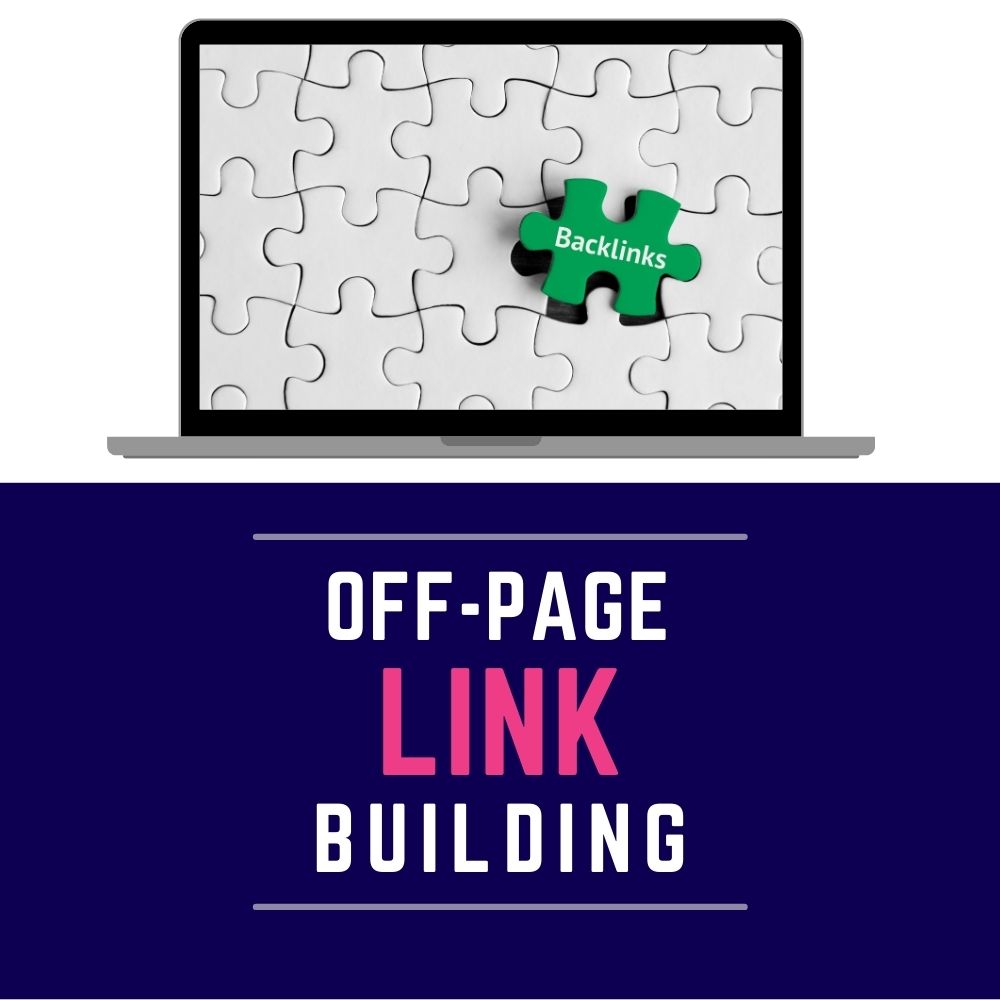
Backlinks
Social Signals
Guest Posting and Influencer Outreach
Guest posting involves writing articles for other websites in your industry, usually in exchange for a backlink. This is a win-win situation; the host site gets valuable content, and you get increased exposure and a quality backlink.
Influencer outreach involves collaborating with influencers in your niche to create content that benefits both parties. The idea is that the influencer’s endorsement provides your business with instant credibility and can drive their audience to your website or social media profiles.
Both guest posting and influencer outreach are excellent methods for earning quality backlinks and enhancing your brand’s online visibility.
Common SEO Mistakes to Avoid.
As we navigate the complex world of SEO, it’s essential to know not just what to do but also what to avoid. Even seasoned marketers can sometimes trip up on common SEO pitfalls. While our team at Central Coast Websites takes immense care to steer clear of such mistakes, it’s beneficial for you to be aware of them too. Understanding what not to do can provide valuable insights into crafting a foolproof SEO strategy.
Avoiding these common mistakes is a big step toward SEO success. It’s not just about what you do right but also about steering clear of actions that could derail your hard work.
Duplicate Content
Keyword Stuffing
Neglecting Mobile Optimisation
Elevate Your SEO Strategy with Central Coast Websites.
In the digital age, a strong online presence isn’t just nice to have—it’s a necessity. Effective Search Engine Optimisation (SEO) is critical to ensure that your website is visible to potential customers when they’re searching for products or services like yours. Throughout this article, we’ve covered the intricacies of SEO, everything from understanding its importance and working mechanisms to optimising on-page and off-page elements. We’ve also shed light on the metrics for measuring success and pitfalls to avoid.
While SEO can be complicated, it doesn’t have to be a challenge you face alone. Central Coast Websites specialises in comprehensive SEO services for businesses in Australia. We’re not just about quick fixes; we aim for sustainable results. Our bespoke SEO strategies incorporate everything from meticulous keyword research and compelling content creation to technical optimisation.
What sets us apart is our attention to detail. We ensure that even the technical aspects of your website are solid from the get-go. We understand the nuances of local SEO and can help you rank well not just globally but also in your immediate market. Every month, we provide detailed reports to keep you updated on our efforts and your progress, and we’re always just a phone call or email away to answer any of your questions or adapt strategies as your business goals evolve.
In a world where 75% of people never scroll past the first page of search results, can you afford not to invest in SEO? Partner with us at Central Coast Websites and let us help you climb the SERPs, increase your visibility, and achieve the business success you deserve.
Contact us today to start your journey toward unparalleled online visibility and long-term business growth.


FAQ'S
We have compiled a list of FAQs to help you navigate the complexities of digital marketing & SEO. Discover valuable insights & answers about working with Central Coast Websites, empowering you to make informed decisions.
Certainly, tackling SEO on your own is an achievable goal, but it requires a significant investment in time and effort to learn the various elements involved. The landscape of SEO is also ever-changing, which means continuous learning is essential. Platforms like Google change their algorithms frequently, so staying updated is crucial.
Doing SEO yourself may involve mastering technical SEO, learning how to write SEO-optimized content, understanding on-page and off-page SEO tactics, and analyzing your website’s performance with tools like Google Analytics.
If you have the time and the dedication to keep up with industry changes, experiment with different strategies, and analyze the results, DIY SEO can work. However, if you want quicker and more reliable results, especially if you’re new to the landscape, investing in a professional service like Central Coast Websites may be more effective and less time-consuming in the long run.
The time it takes to see improvements in search rankings through an SEO strategy varies. While some may notice shifts within a few weeks, significant changes often take longer—sometimes 6-12 months or more. Factors affecting this timeline include your starting point, the level of competition in your industry, the quality of your SEO work, and search engine algorithm updates. Remember, SEO is a long-term investment and it’s important to be patient and consistent for sustained success. Monitoring your metrics through tools like Google Analytics will provide insights into the effectiveness of your strategy and any adjustments needed.
The cost of implementing SEO on a website can vary widely depending on several factors. These can include the size of your website, your industry’s competitiveness, and the specific services you require. Some agencies offer packages that start at a few hundred dollars a month, while others may charge thousands for more comprehensive services. It’s also possible to take a DIY approach, but that will cost you in terms of time and effort, and there’s the risk of making mistakes if you’re not well-versed in SEO. Always consider your budget, goals, and how crucial SEO is for your business to determine what you’re willing to invest. Our SEO prices start from $1000 per month.
How can we help.
Ready to stand out in the digital crowd? Our Central Coast digital marketing agency blends creativity with analytics to deliver exceptional results. We understand that every business is unique, and we tailor our strategies to match your goals. From building a robust online presence to launching targeted campaigns that resonate, our team is dedicated to propelling your brand forward. Don’t settle for mediocrity – let’s work together to create a digital strategy that drives real impact. Contact us today for a comprehensive consultation and let the journey to digital success begin!
Contact us today
"*" indicates required fields
